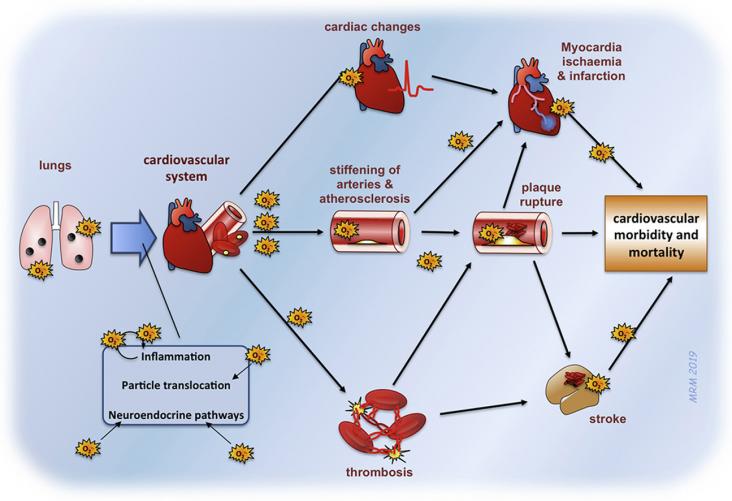
The SDG Impact of COVID-19 podcast series gathers expert opinion exploring the impact of COVID-19 on the Sustainable Development Goals. In this segment, we get the view of Dr Christian Toennesen, Senior Partner at Carnstone and Chair of the Responsible Media Forum.
Despite a global understanding that indicators and outcomes of cardiovascular disease (CVD) are known to differ between men and women, uptake of the recognition of sex and gender influences on the cli

Cardiovascular causes have been estimated to be responsible for more than two thirds of the considerable mortality attributed to air pollution.
This study supports SDG 3 and 10 by highlighting the increased prevalence of diabetes and gestational diabetes in Indigenous women compared with non-Indigenous women, across Australia, Canada, New Zealand, and the USA. These findings highlight the need for system-wide and structural interventions to reduce the risk of diabetes and gestational diabetes in Indigenous women before, during, and after pregnancy.

This webinar explores how COVID-19 has effected the Rule of Law and the intersection of SDG 3 Good Health and Wellbeing with SDG 16 Peace Justice and Strong Institutions.
Achalasia cardia is a primary motor disease of the esophagus characterized by failure of lower oesophageal sphincter (LES) relaxation and eventual loss of normal oesophageal peristalsis. This study finds that laparoscopic Heller myotomy and anterior Dor is both safe and effective as a definitive treatment for treating achalasia cardia with a high degree of patient satisfaction with minimal complications, and it supports SDG 3 Good health and wellbeing
Background: Since 1979, mortality from hepatocellular cancer (HCC) has doubled in the United States (US).

The SDG Impact of COVID-19 podcast series gathers expert opinion exploring the impact of COVID-19 on the Sustainable Development Goals. In this segment, we get the view of Dr Annie Sparrow, Associate Professor of Population Health, Science and Policy at the Icahn School of Medicine at Mount Sinai.
Multiple symmetric lipomatosis (MSL) was responsive to non-surgical interventions. Introduction of lifestyle interventions coincided with dramatic improvement in MSL. This self-initiated N of 1 intervention was for MTTK c.8344A>G associated MSL Serendipitous finding of similar efficacy in a sibling was the basis for this study.
This chapter addresses Goal 3 by examining late-life anxiety in older adults.
